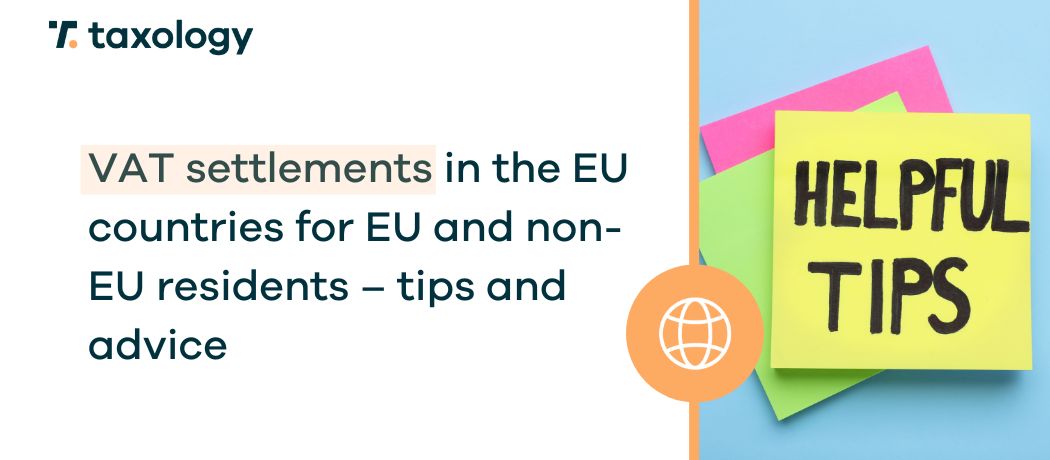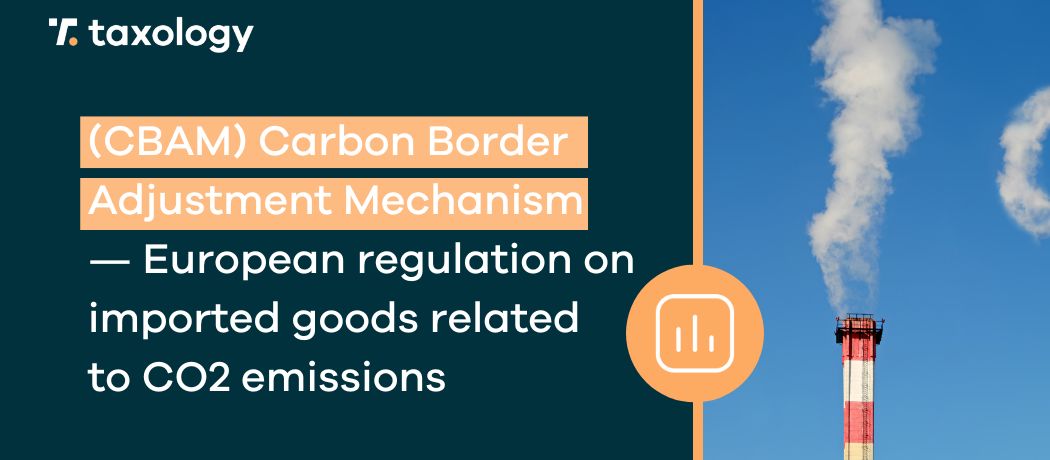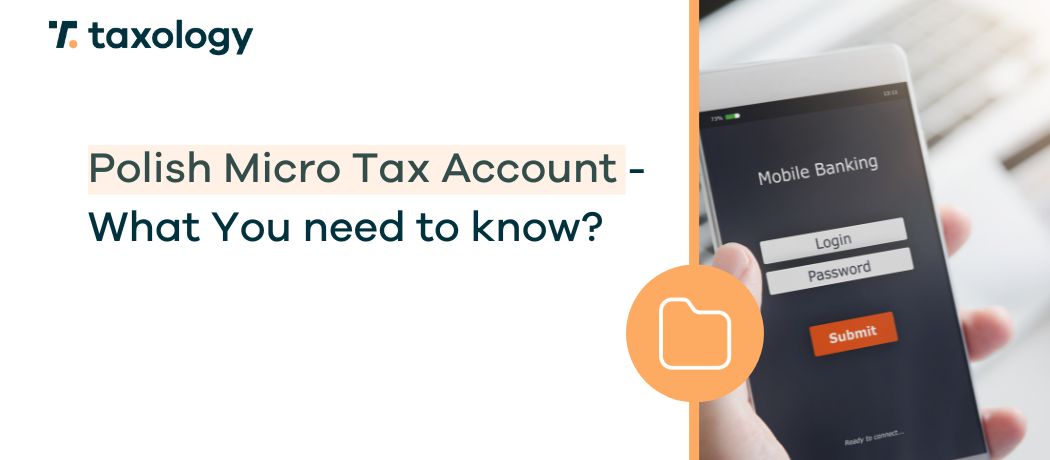In the era of changing regulations affecting business operations, entrepreneurs must regularly face new challenges, including in the accounting area. However, it sometimes happens that they are unable to fulfill […]
Read in: 5 minVAT settlements in the EU for EU and non-EU residents – tips and advice
- Last update: 20.03.2024
- Published: 06.03.2024
- Read in: 5 min
VAT settlements in European Union countries are a key aspect of financial management for any business operating on the international market. Understanding the rules that govern these settlements is essential for both EU residents and entities from outside the EU who wish to engage in commerce with customers in Europe.
However, entering a new market may often be a challenge, due to various specific local regulations. When talking about the EU member states, one has to keep in mind, that there are general, European regulations set by the EU, and local laws specific to each country. That’s why it’s essential to get to know the regulations and act compliant, as failing to abide by law may result in sanctions and fines.
If you seek advice and knowledge about VAT settlements for the EU and non-EU residents, you are in the right place, as in this article we have given a deeper look into obligation concerning settling VAT in the European Union. We hope it comes as helpful to you and you enjoy your lecture!
1. VAT in the EU - Place of taxation
Let’s start by determining the place of taxation. To do so, one has to consider a few factors:
- the country of origin and the country of destination of goods;
- the customer’s status – private (B2C sales) or business (B2B);
- the total value of goods and services sold to private customers from within the EU.
VAT in the EU – Sales model
As mentioned, the place of taxation, and taxation in general, depends on the sales model.
B2B
B2B sales generally assumes 2 options:
- intra-community supply of goods, which is 0% VAT-rated within the EU;
- local sales, subject to VAT according to the national law of the country where goods are located.
However, to benefit from 0% VAT rate when conducting intra-community supplies (sellers’ perspective) and acquisitions (consumers’ perspective), the purchaser has to be an active VAT payer, whilst the seller has to possess a proof of having shipped the goods to another EU member state.
One can check if a contractor is a valid VAT payer on this site (Vies on-the-Web – European Commission (europa.eu)), by checking their VAT number. If they are not, the seller shall use the VAT rate suitable for the goods and services sold in the country of taxation.
B2C
If you are an EU resident and conduct sales to other member states, you have to watch out for the EU distance sales limit equal to 10,000 EUR. It applies to one’s whole B2C sale within the EU countries.
Before exceeding the limit
Before exceeding this limit, one shall apply VAT rates applicable in their country and settle for VAT there, as if you were selling to local customers.
Keep in mind that the aforementioned limit applies in situations where one sells goods from their country of residence. If products are stores abroad and sold from there, one has to locally register for VAT there.
After exceeding the limit
Having exceeded the limit, one has two options. One is to locally register for VAT in the country, where the goods are shipped to, use the VAT rates applicable in that country, and settle for VAT there locally.
The other option is to use the VAT OSS procedure.
2. Settling VAT in the EU - VAT OSS
VAT OSS is a special, voluntary procedure that applies to all the company’s B2C sales from one EU member state to private customers from another, and allows to report VAT in the country of incorporation in the form of a quarterly, joint VAT return.
ATTENTION: VAT OSS only applies to sales between the member states and to private customers. One cannot use this procedure when storing goods in a Czech warehouse and selling to Czech customers, or to customers from Europe but not from the member state, i.e. Switzerland.
Moreover, when one decides to use the procedure, they must apply it to all the B2C sales they conduct within the member states.
VAT OSS registration
Before using the VAT OSS, you must register for this procedure. This is possible in the country of the fiscal residence. Moreover, when one submits suitable forms and documents, required for the VAT OSS registration, you will be able to use the procedure, since the quarter following the quarter of registration.
VAT OSS for non-EU resident companies
The VAT OSS procedure is also available for non-EU resident companies. However, in order to benefit from that, you have to register for it first, which requires them to acquire a local VAT number in any member state, and then proceed with the OSS registration.
ATTENTION: VAT OSS users have to keep a record of transactions for 10 years, starting the year after a given tax year. It should contain such data as:
- member state of consumption,
- type of service provided / description of goods dispatched,
- the date of service/delivery,
- the tax base,
- amounts increasing or decreasing the tax base,
- the VAT rate applied,
- the amount of VAT including the currency,
- the date and amount of the payments received.
The full list of required evidence is available in the article 63 of the Commision Implementing Regulation no. 282/2021.
Moreover, records of transactions should be kept electronically and shared with the authorities from the member state of identification and member states of consumption, when requested. It is also possible to keep physical copies, however, it should be determined by the authorities.
3. Settling VAT in the EU - When to register for VAT?
As mentioned earlier, there are some cases in which one has to register for VAT locally.
Distance sales limit
The first one is exceeding the B2C distance sales limit within member states, and not using the VAT OSS procedure.
Foreign warehouse or fulfillment center
Another case when a local VAT registration is required is storing goods in another country. For that, one has to acquire a local VAT number and submit local VAT returns when selling to customers in the same country. However, when selling from abroad to customers from another country, using VAT OSS is possible.
Documents required for local registration
Although the VAT registration process differs in each country, there are some documents that are always or almost always required, when one applies for a local VAT number. These include, among others:
- a copy of the company’s articles or memorandum of association, translated to a local language,
- commercial register entry along with a sworn translation,
- confirmation of VAT registration in the home country,
- evidence of business activities in a country, such as invoices demonstrating transactions with local counterparties,
- power of attorney (when appointing a fiscal representative Belgium requires from non-EU resident companies),
- passport or identity card.
Non-EU resident entities
Many entities from outside the EU conduct sales with private customers or business contractors from the member states. Thus, let’s explain the rules that apply in such situations.
4. Settling VAT in the EU - Manner of taxation
The manner of taxation for non-EU resident companies depends on a few factors:
- the customer’s status: private (B2C) or business (B2B);
- country, where the goods are stored;
- value of sales.
B2B sales
When a non-EU resident seller conducts B2B sales with a purchaser from the member states, and the goods are sent from outside the EU to the member state, they have no obligation to charge VAT. However, in this case, the purchaser has an obligation to recognize the transaction as import of goods and the VAT tax should be charged by them, using the reverse charge mechanism, using the VAT rate applicable in their country.
However, when a non-EU resident entity conducts B2B sales and sends goods from a warehouse within the UE, they should review the local VAT provisions. In most cases, they will have to charge VAT for such transactions.
B2C sales
A company without a seat of fixed establishment within the EU who sale to private customers from the EU, must take into account a few factors regarding VAT settlements.
Country of dispatch
The first one is the country from which the goods are sent.
If it’s an EU country, then one has to register for VAT locally in the country of sales or use the VAT OSS procedure. However, this also requires a local VAT registration in a country, where one intends to register for the VAT OSS scheme. This may turn out to be the best option, when selling for customers from multiple member states.
If the goods are sent from a country outside of the EU, then the import VAT is generally applicable. Hence, sellers should clarify the country of dispatch in their offers.
Online marketplaces
The second factor is the platform through which the transactions take place.
From 1 July 2021 sales platforms have an obligation to collect VAT on sales, when the seller is established outside of the EU and the goods are sent from a territory of a member state to a private customer. In this case, VAT rates depend on the country of destination.
5. Settling VAT in the EU - VAT IOSS
VAT IOSS is intended for entrepreneurs from outside of the EU, who import goods to the member states. In order to use this procedure, one has to register locally for VAT in a member state of choice, and with a local VAT number, apply for VAT IOSS registration.
Let us state, that VAT IOSS is optional and allows settling VAT only for transactions valued below 150 EUR.
VAT settlements in the EU countries for EU and non-EU residents – summary
Navigating the complex landscape of VAT settlements within the European Union, whether as an EU resident or a non-EU entity, demands a comprehensive understanding of both European-wide regulations and country-specific laws. The intricacies of VAT regulations, including the determination of the place of taxation, VAT OSS, VAT IOSS, and the implications of exceeding sales thresholds, underscore the importance of diligent compliance and strategic planning.
VAT aspects may be challenging, if you have never operated in the EU member states’ markets. Even if you have, the regulations vary, depending on the country, as there are also national laws specific to each member state.
That’s why, if you are in need of assistance and guidance with VAT and VAT OSS matters – regulations, registrations, settlements or returns – schedule a consultation, and let us know what the problem is. Our team of VAT Compliance specialists will take care of the rest.




